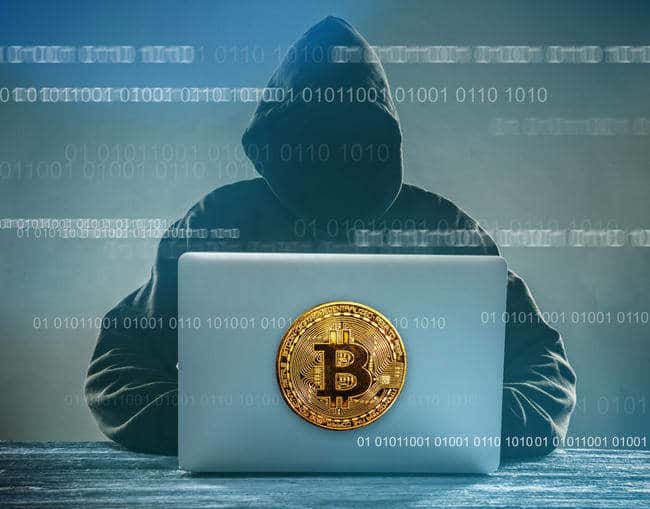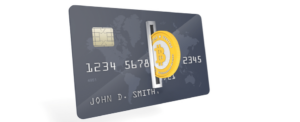Want to buy Bitcoin anonymously? To understand if it’s possible—and whether or not it’s advisable—let’s start with a look back at the origins of cryptocurrency. The early promise of Bitcoin was as a decentralized peer-to-peer currency, one that eliminated the need for banks, for financial borders, and for regulations. Along with that promise came a different sort of promise: that of anonymity. After all, if you were looking to buy Bitcoin from individuals, and without the banks looking over your shoulder, there was no need for people to know who you were, nor did you need to know who you were buying from.
A field of deregulation
It’s important to remember that until the day Laszlo Hanyecz bought pizza with Bitcoin, it was a largely theoretical currency based on a platform that was built on a big idea. But what began as a niche currency, quickly evolved when it became clear that Bitcoin had staying power, as well as real value as a currency. Suddenly, Bitcoin was no longer a coin that was mined at home and traded among peers; it became an industry, with vendors and exchanges setting up Bitcoin ATMs, or, as Coinmama did in 2013, making it possible to buy Bitcoin online with a credit card.
Of course, as Bitcoin morphed from a theoretical currency and its value began to rise, so did its use in the more unsavory corners of the web. With Bitcoin still anonymous and largely unregulated, it began being traded on the darknet, with people using the coin for human trafficking, to fund terrorism, for money laundering, and even for tax evasion. That’s not entirely surprising: after all, the blockchain consisted of strings of wallet addresses and Bitcoin amounts. Wallet addresses could be easily generated, and nothing was particularly traceable. Along with the legitimate buyers—those who wanted to buy cryptocurrency as an investment—there also existed an unregulated playground of criminal activity where people would buy Bitcoin with cash.
The rise of regulations
It became very clear very quickly to governments, banks, and also cryptocurrency vendors, that this was unsustainable. Along with wanting to fight terrorism and human trafficking, governments were also loathe to miss out on a piece of the tax pie when it came to Bitcoin, and a spate of regulationswere introduced by countries around the world. What did this mean for the cryptocurrency industry as a whole, and for the people looking to buy Bitcoin?
In practice, two things happened: first, although Bitcoin and other cryptocurrencies still remain decentralized, the introduction of regulations means they’re no longer off the grid. The downside of that is that decentralization and regulation are at odds with one another, and as Bitcoin becomes more regulated, it also becomes more centralized. The upside though, is that those same regulations lend cryptocurrency more legitimacy, encourage people who may otherwise be scared to invest in Bitcoin to do so, and increase its staying power. Second, as with other financial services and institutions, suddenly the people selling cryptocurrency were responsible for where their coins went, and where they came from. In order to comply with anti-money laundering (AML) regulations and reporting policies instituted by governments around the world, cryptocurrency vendors and exchanges began removing much of the anonymity that was in place. It has become harder to buy Bitcoin online anonymously, with most exchanges, including Coinmama, requiring users to verify their accounts.
So if you’re still looking to buy cryptocurrency anonymously today, can you? And more importantly, should you? To answer that, let’s look at the various methods that exist to buy cryptocurrency.
How to Buy Bitcoin
1. Bitcoin ATMs
Bitcoin ATMs still provide a fairly easy way to buy Bitcoin anonymously—at least for now. Yet because they’re a hotbed for money laundering, cities such as Vancouver are considering banning the machines. In addition, many machines now require at least some level of account verification—a telephone number, or even a fingerprint—in an effort to comply with AML regulations, making them less anonymous than you think. And it should go without saying that Bitcoin ATMs that let you buy Bitcoin with credit card are not anonymous at all.
But putting all that aside, if you do want to buy cryptocurrency with cash using a Bitcoin ATM, just how easy is it to do, and is it worth the hassle? To use a Bitcoin ATM, you obviously have to have one relatively close by. If you’re in an urban area, they’re not too difficult to find, though outside of cities you might have a harder time. On top of that, because of their anonymity, many Bitcoin ATMs have transaction limits that are much lower than when you buy Bitcoin online. They’re good for buying or selling small amounts of Bitcoin, but if you want to buy in larger amounts, you’ll need to complete a full verification process, even with a Bitcoin ATM. Add to that the fact that Bitcoin ATMs usually charge a higher fee than online exchanges, and we’ll put our Bitcoins on anonymous ATMs slowly becoming obsolete.
2. Buy Bitcoin in person
Perhaps the only truly anonymous way to buy Bitcoins is to do so in person. Using a site that facilitates local trading between people, you can search for sellers in your area interested in meeting for a cash trade. The details and terms of the meeting are arranged online, and then the trade itself happens face-to-face.
In-person trades not only provide anonymity, they also don’t carry the same trading limitations that some online exchanges and Bitcoin ATMs have. Additionally, buyers and sellers determine the price, which often means getting a better rate than through an exchange. But what in-person trades offer in anonymity, they lack in convenience and safety. As with Bitcoin ATMs, in order to trade face-to-face you need to live in an area with a lot of traders. While it may be easy to find someone to trade with in a major city, the odds decrease significantly in smaller areas. And meeting someone you don’t know face-to-face to trade cash for Bitcoin (or vice versa) leaves you exposed. You never know who exactly you’re meeting, and you run the risk of getting scammed. Additionally, without AML procedures in place, you can’t be sure where your coins are coming from, which may make them more difficult to sell when you’re ready to cash out your investment. Because of AML regulations, some exchanges will only let you sell coins you bought through them, or use cybercrime-fighting tools to trace the origins of coins and make sure they haven’t been used illegally. When you buy cryptocurrency face-to-face, you may be leaving your investment unprotected. Lastly, even the anonymity of face-to-face trades may soon be a thing of the past, as sites that facilitate peer exchanges, both online and in person, are starting to require identity verification in compliance with AML regulations.
3. Buy Bitcoin online
The easiest way to buy Bitcoin is also the least anonymous. Vendors and exchanges such as Coinmama let users buy cryptocurrency in high amounts and with the ease of not leaving the house. Coinmama, for example, lets users buy Bitcoin with credit cards for up to 5000 USD per transaction, while users paying by bank transfer can purchase up to 30,000 USD in crypto at a time. But the convenience of being able to buy or sell from anywhere and in high amounts comes at the expense of anonymity. Coinmama, like all other legitimate cryptocurrency vendors and exchanges, utilizes an account verification process that includes obtaining copies of a user’s ID card.
While you may be trading in anonymity, you’re not only getting convenience in exchange, you’re also getting safety. Buying crypto from a reputable vendor not only protects you from getting scammed, you can also know your coins have come from a clean source and that you’ll be able to sell them down the road.
The bottom line
As Bitcoin becomes more and more accepted by the mainstream, it’s also becoming more and more regulated. While that may seem, at first glance, to be antithetical to Bitcoin’s origins, in the long run, it’s a good thing. After all, a currency whose main users are criminals will lack the longevity Bitcoin investors are counting on. It may be becoming harder to buy Bitcoin anonymously, but it’s becoming easier to sell it, and its staying power is becoming more apparent. There are still some ways to buy cryptocurrency without going through an account verification process, but those methods are few and far between, and the associated risks often aren’t worth it.



